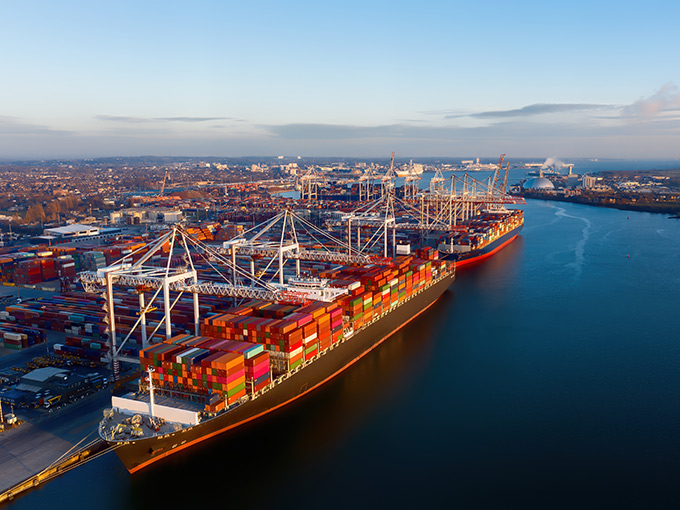VAT Update – November 2025
In our final VAT Update of the year, we consider and provide insights on:
- An update to HMRC guidance on late claims of input tax,
- A case concerning import VAT recovery,
- The Nutella biscuit case, and
- The Supreme Court decision on VAT and NHS car parking.
When preparing VAT returns businesses often identify purchase invoices that are dated in an earlier VAT accounting period, and unless cash accounting, when the VAT is then being reported as recoverable input tax, these are likely to be seen as late claims.
HMRC’s guidance for how to treat late claims for input tax has recently been updated to include examples of practical reasons for claims for input tax in later periods. The update also clarifies that HMRC will not exercise its discretion to allow late claims where there is evidence of carelessness or where there are cases of repeated late claims.
Claims for input tax should be made in the accounting period in which the tax due on the relevant goods or services becomes chargeable, referred to as the proper period. This is nearly always based on the tax point as per the VAT invoice received from a supply. However, late claims are allowed under circumstances where the claim cannot be made in the proper period, such as where the VAT invoices may not have been received in time.
If there is not an acceptable reason a late claim is likely to be seen as an error and to recover the VAT may require a separate disclosure to HMRC, rather than simply including it within the current VAT return.
HMRC consider the following acceptable reasons as to when input tax late claims can be made:
- Where the business is carrying out due diligence, including examining invoices for deductible and non-deductible costs to ensure VAT recovery is appropriate, or
- Where the business’ internal accounting and governance prevents input tax recovery in the proper period, for example where a business has a cut of date for processing invoices.
HMRC will allow late input tax recovery in the above circumstances and in specific cases provided they are satisfied that allowing late claims does not result in increased input tax recovery than if it were claimed in the proper period. Businesses who are partially exempt should ensure that the input tax is only recovered to the extent that it would have been in the period the tax became chargeable.
Late claims of input tax are subject to the usual capping limit of four years following the VAT return in which the input tax should have been claimed. Where input VAT has not been claimed in the proper period due to an error, businesses are still required to follow the usual error.
Comments
The guidance provides helpful clarification for businesses who are routinely facing delays in claiming input tax due to their internal accounting controls. However, the allowance of input tax late claims remains at the discretion of HMRC, and business should review their procedures to ensure VAT recovery is made in the proper period, which is particularly important for partially exempt businesses. Otherwise, these late claims may simply be VAT errors.
While HMRC’s position appears to provide clarification regarding acceptable reasons for late claims of input tax, recent cases suggest that HMRC’s general approach to input tax recovery has become more stringent.
If you require any assistance with late claims for input tax or any other aspect of input VAT recovery, please contact John Butterfield, VAT Director to discuss further.
The First-tier Tribunal (FTT) has dismissed TSI Instruments Limited’s (TSI) appeal against HMRC’s assessments totalling approximately £8.5 million for overclaimed input VAT between 2019 and 2023.
TSI imported scientific equipment into the UK for the purpose of servicing, repairing, and calibrating goods originally sold by the TSI Group to customers worldwide. Although TSI was not the legal owner of the goods it acted as the named importer, paid the import VAT, and claimed this VAT as input tax on its VAT returns. TSI also paid the charges made by the shipping company with respect to the declaration and customer clearance formalities on behalf of TSI.
HMRC challenged the input VAT claims on the basis that TSI, not being the owner of the goods, was not entitled to recover the import VAT. They argued that the value of the imported goods was not incorporated into TSI’s taxable outputs (ie the repair services), and therefore the input tax was not deductible.
TSI argued that ownership is not a prerequisite for input VAT recovery. They argued that since they bore the importation costs and there was a direct and immediate link between these costs and their taxable activities, the VAT should be recoverable.
However, the FTT sided with HMRC, concluding that under both UK and EU VAT law, input tax recovery on import VAT requires a link between the cost of the goods and the taxable outputs. As TSI did not own the goods and the value of the goods was not reflected in its output transactions, it was not entitled to reclaim the VAT.
In order to rectify the issue going forwards, HMRC identified that TSI could either arrange for the owner of the goods to be the importer of the goods so that the owner can claim an input tax credit or to register for inward processing relief.
Comments
This case highlights importance of understanding your supply chain when importing goods. Particularly, where the party importing the goods is not the owner.
The FTT’s decision reinforces the principle that VAT recovery is contingent on both legal ownership and the integration of import costs into taxable outputs.
For further details, please contact Nick Hart, VAT Partner.
In Ferrero UK Limited v The Commissioners for HMRC the First Tax Tribunal considered whether the Nutella biscuit product should be zero-rated or standard-rated for VAT purposes. Nutella biscuits consist of a Nutella filling and a ring made of a chocolate-like substance, sandwiched between two baked biscuit elements. Only about 1mm of the chocolatey ring is visible around the edge of the biscuit.
Ferrero argued that the biscuits are zero-rated for VAT, as they were not ‘… partly covered with chocolate or some product similar in taste and appearance’. If the product was so covered, it would have fallen into an exception to the zero-rate which applies to many food items. HMRC did not agree the appellant’s conclusion and assessed for under-declared VAT considering the product to be a chocolate (or something similar to chocolate) covered biscuit and standard-rated as a result.
The FTT found in favour of Ferrero. It interpreted ‘partly covered’ to mean that chocolate or a similar substance must be laid over the surface of the finished product so as to form, in whole or in part, the outer surface of that finished product. It held that, when viewed as a whole, the outer surface of the biscuit was not covered by the chocolatey ring, to any extent. The manufacturing process resulted in the Nutella element and chocolatey ring, being below the outer surface and not forming part of it. The court felt that despite the chocolatey ring being visible it did not mean the biscuit was covered by this element and concluded the product is zero-rated as a food item which does not fall within the exceptions to zero-rating.
Comments
Another food VAT case for us to ‘chew on’ (pun intended). As in so many of these type of cases the fine details of the product, how it is made, the ingredients it contains, and the nature of the finished are all important factors.
The case also adds weight to the argument that the legislation which determines the zero-rating for food items is due an overhaul. The food industry is forever evolving, with regular new product launches which if they are chocolate related in any way, often result in dispute with HMRC and the matter going to Tribunal, which is not without significant cost in some instances. It remains to be seen whether government will react to the clamour for legislative change to make rules on food VAT liabilities easier to digest (again, pun intended!).
If you manufacture or supply a food or drink product and you are deliberating over the correct VAT liability please get in touch with Nick Hart, VAT Partner for assistance.
In Northumbria Healthcare NHS Foundation Trust (Respondent) v Commissioners for HMRC (Appellant) the issue was whether the Trust was required to charge VAT on the supply of car parking to patients, visitors, hospital staff and others at some of its hospital sites. Ordinarily, VAT is charged on the supply of car parking facilities, however, certain activities undertaken by public bodies when acting as public authorities under a ‘special legal regime’ (SLR) VAT does not apply. However, if not being required to account for VAT would lead to significant distortions of competition with the private sector, VAT is chargeable.
The Trust argued that its provision of car parking was governed by Department of Health guidance and linked to its public healthcare functions, meaning it was provided under an SLR and should not be subject to VAT. HMRC contended that the Trust was not acting under an SLR and should have charged VAT on car parking.
The Supreme Court considered:
- Whether the Trust was acting under an SLR when supplying car parking.
- Whether treating the Trust as non-taxable would lead to significant distortions of competition.
The Court held that the Trust was not acting under an SLR in providing car parking, as the relevant guidance did not impose legal obligations distinct from those on private operators. It also concluded that treating the Trust as a non-taxable person, with regard to parking services, would lead to significant distortion of competition with private operators.
The Supreme Court therefore decided that the Trust was required to charge VAT on car parking. In doing so it overturned the Court of Appeal judgement and returned to the decisions of the FTT and Upper Tribunal.
Comments
This decision clarifies the scope of the VAT exemption for public bodies, confirming that NHS Trusts must charge VAT on car parking unless they are acting under a legally distinct regime. The ruling has implications for other public bodies supplying services in competition with private operators.
For further details on this significant case for the public sector, please contact Nick Hart, VAT Partner.
Contact us
Partner, Bristol
Key experience







